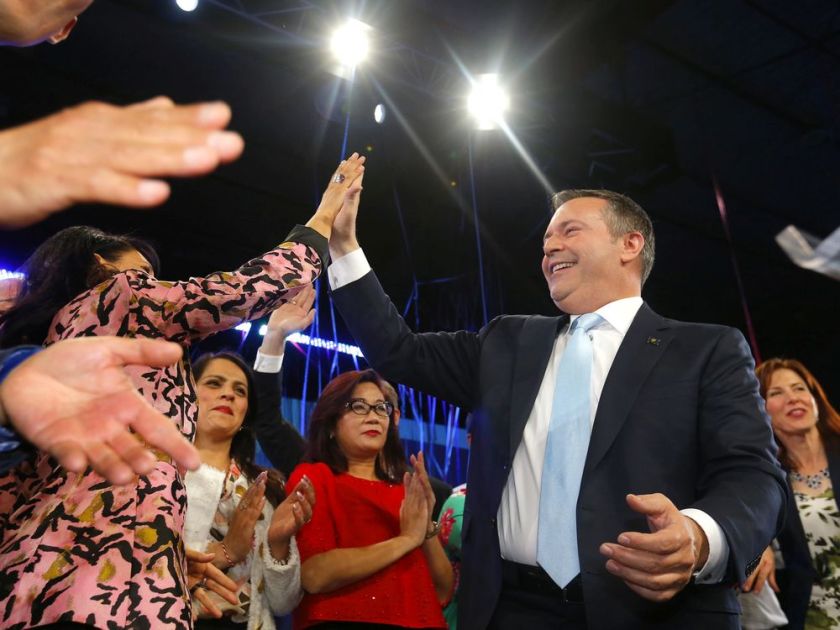“Great events” are more important than great speeches to promote Quebec independence, Jean-François Lisée wrote in his post-mortem on the disastrous performance of the Parti Québécois under his leadership in the general election last October.
Lisée is right that the most important gains by the indépendantistes have been mainly in reaction to the actions of federalists. That’s why the present best hope for the revival of this province’s independence movement lies not with some charismatic new Québécois leader, but with the premier of Alberta.
Jason Kenney is the head of Alberta’s United Conservative Party government elected in April on his promise to Albertans — and his threat to Ottawa — to hold a referendum on abolishing the federal equalization payments received by other provinces.
The referendum would be held in October 2021, unless two recently adopted federal environmental laws opposed by Alberta’s gas and oil industry are repealed, and the Trans Mountain oil pipeline expansion from Alberta to the Pacific coast demanded by the industry is built.
“I’m copying Quebec,” Kenney told Montreal’s La Presse in a recent interview, saying this province has dominated Canadian politics for the past 40 years by strongly defending its interests.
At first glance, Kenney’s referendum threat looks empty.
The referendum would be a glorified opinion poll, since Alberta does not have the power to abolish the equalization program by itself.
The Alberta government couldn’t cut its contributions to the program, for the simple reason that it doesn’t make any. Equalization is a federal program financed by the revenue collected by the federal government directly from individuals and businesses across the country, including the provinces that receive equalization payments.
What’s more, equalization’s purpose, “to ensure that provincial governments have sufficient revenues to provide reasonably comparable levels of public services at reasonably comparable levels of taxation,” was enshrined in the Constitution in 1982.
To remove that protection would require a constitutional amendment authorized by Parliament and the legislatures of at least seven provinces with at least 50 per cent of the population of all the provinces.
Since all but three of the 10 provinces now receive equalization payments, an amendment in the foreseeable future appears unlikely.
And viewed from distant Quebec, Alberta lacks what really gave this province its political leverage: a strong secessionist movement that threatened to break up the country. It’s what one Quebec political scientist called the “knife at the throat” strategy.
There are separatists in Alberta, but their movement is still in its early stages, not as well-organized as Quebec’s, even in the latter’s present dormant state.
So without a credible threat to Canadian unity, Kenney’s knife at the throat is made of rubber. Maybe that’s why he appears to be trying to borrow Quebec’s instead, using the threat of a referendum that might revive this province’s independence movement to put pressure on Ottawa. Even a dull blade is better than no blade at all.
Kenney must know that a referendum campaign against equalization in Alberta would be a campaign against Quebec, because he has helped ensure that himself.
He has singled out Quebec for blame for ungratefully opposing construction across its territory of a pipeline for exports of what Premier François Legault called Western Canada’s “dirty energy” while Legault cashed fat equalization cheques.
French-speaking Quebecers generally ignore politics in the rest of the country, unless they see other francophones or themselves as its victims.
That’s what they would see in the two-year buildup to what would almost certainly be a vote against equalization in Alberta a year before the next general election is due in this province.
And that could turn out to be the “great event” that Lisée said the Quebec independence movement needs.
Kenney, a former federal cabinet minister who speaks French, may know Quebec well enough to understand that. In fact, he may be counting on it, playing a game of chicken against federal politicians, hoping they understand it, too.





























